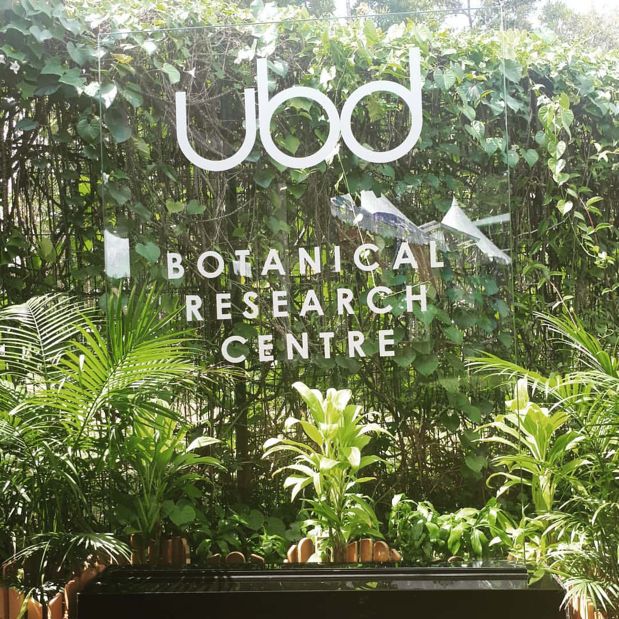(Image caption: UBD Botanical Research Centre (BRC) is now a member of the Botanic Garden Conservation International (BGCI). Under the BGCI, BRC has been awarded a research grant from the National Geographic Society, for a two-year project entitled “Securing the future of threatened tree giants in Borneo”, which aims to secure the future of Borneo’s endangered Dipterocarp trees – known to be vital to Borneo’s tropical forests.)
The UBD Botanical Research Centre (BRC) is now a member of the Botanic Garden Conservation International (BGCI). BGCI represents a network of 500 botanic gardens in more than 100 countries. The organization aims to collect, conserve, characterise and cultivate samples from all of the world’s plants as an insurance policy against their extinction in the wild and as a source of plant material for human innovation, adaptation and resilience. The BGCI network of botanic gardens include: globally significant ex situ collections, covering approximately a third of known plant diversity; world class seed banks, glass houses and tissue culture infrastructures; and technical knowledge networks covering all aspects of plant conservation policy, practice and education.
Within the BGCI organisation, the Southeast Asia Botanic Gardens (SEABG) network is the coordinator for botanical gardens in the Southeast Asian region. SEABG, which includes UBD’s Botanical Research Centre has been awarded a research grant from the prestigious National Geographic Society, for a two-year project entitled: “Securing the future of threatened tree giants in Borneo”. The long-term aim of this project is to secure the future of Borneo’s endangered Dipterocarp trees, which are vital to the Borneo’s tropical forests.
More than 350 species of the Dipterocarpaceae family, which are amongst the tallest tropical trees in world, have been considered threatened with extinction by the International Union for Conservation of Nature (IUCN). The loss of these tree giants in Borneo’s tropical peat swamp forest is causing further declines in the already Critically Endangered Bornean orangutan. A key recommendation for Dipterocarp conservation by the IUCN Global Tree Specialist Group is for greater cross-country collaboration between Brunei, Malaysia and Indonesia (the three countries that encompass the island of Borneo).
To address this, project activities will promote the exchange and transfer of relevant skills and resources among partner organisations from Malaysia, Indonesia and Brunei, as well as from specialists to non-specialists through a strengthened network of conservation practitioners. Specifically, this will include the collection and propagation of Dipterocarps at the brink of extinction, accompanied by a comprehensive training programme to consolidate horticultural techniques.
Best practice guidelines for incorporating Dipterocarps, which are important to Bornean orangutans restoration programmes, will also be initiated to facilitate further recovery actions in the region. This project is part of a larger programme to establish a network of threatened tree collections in Southeast Asia.

